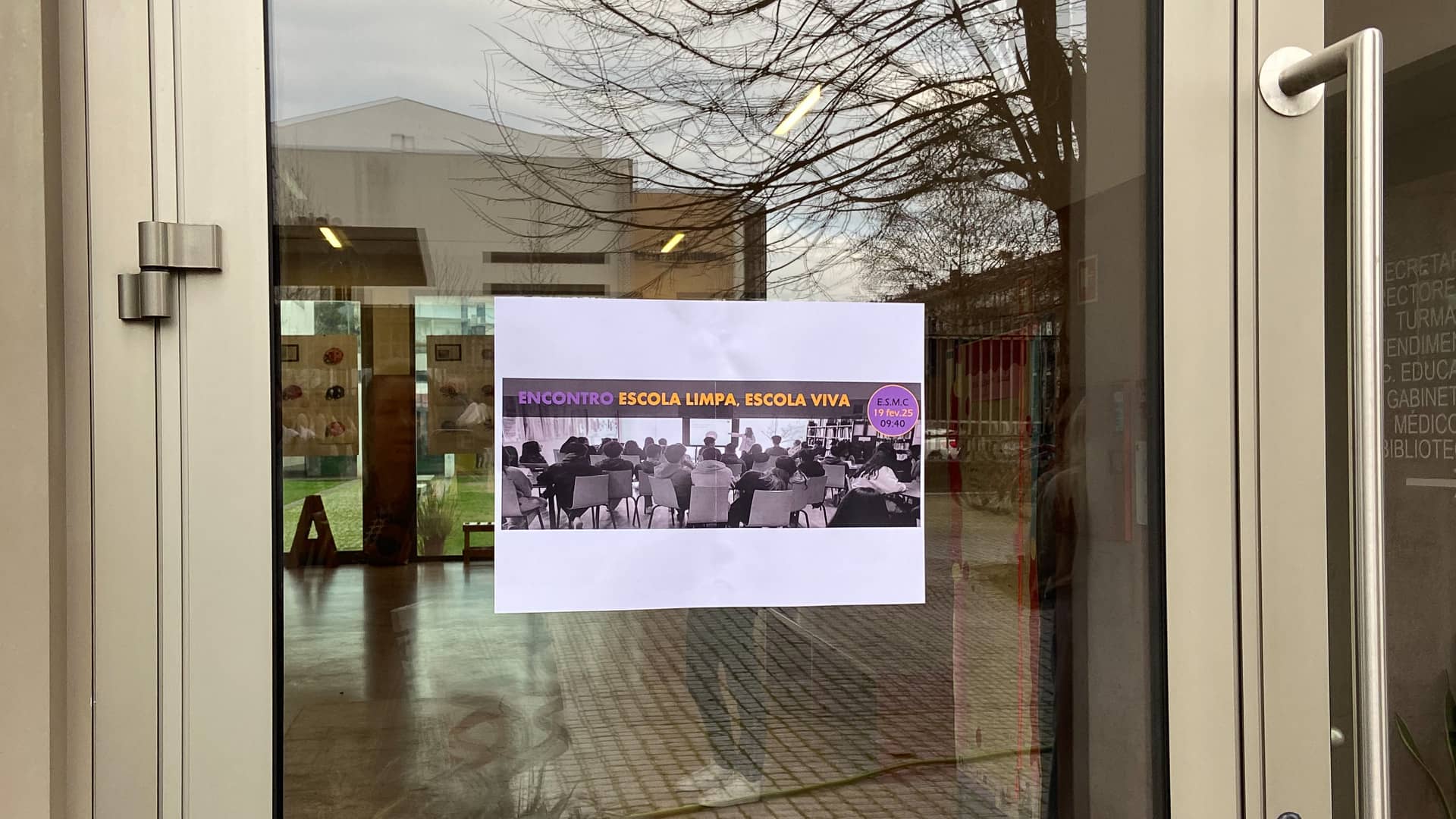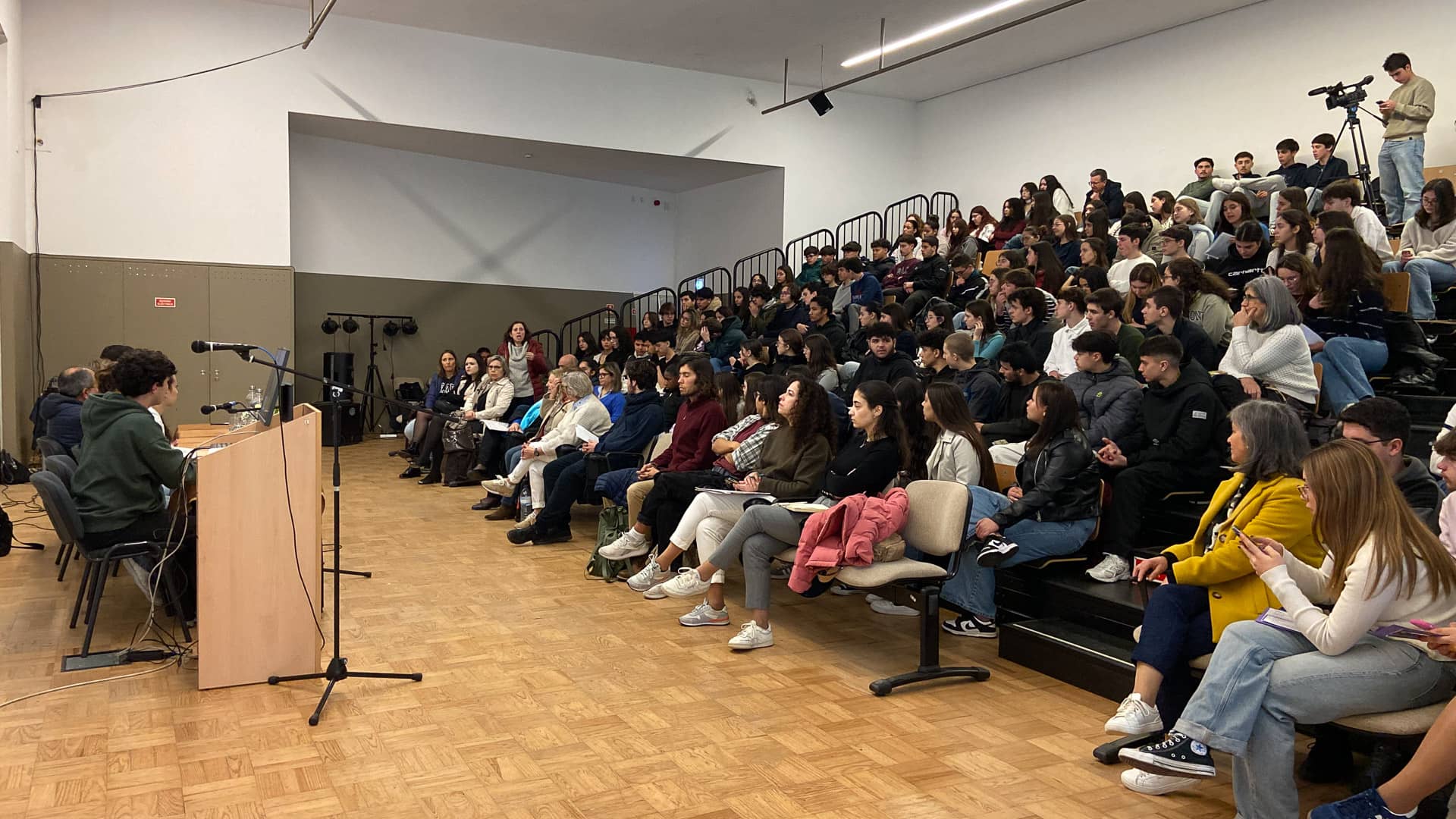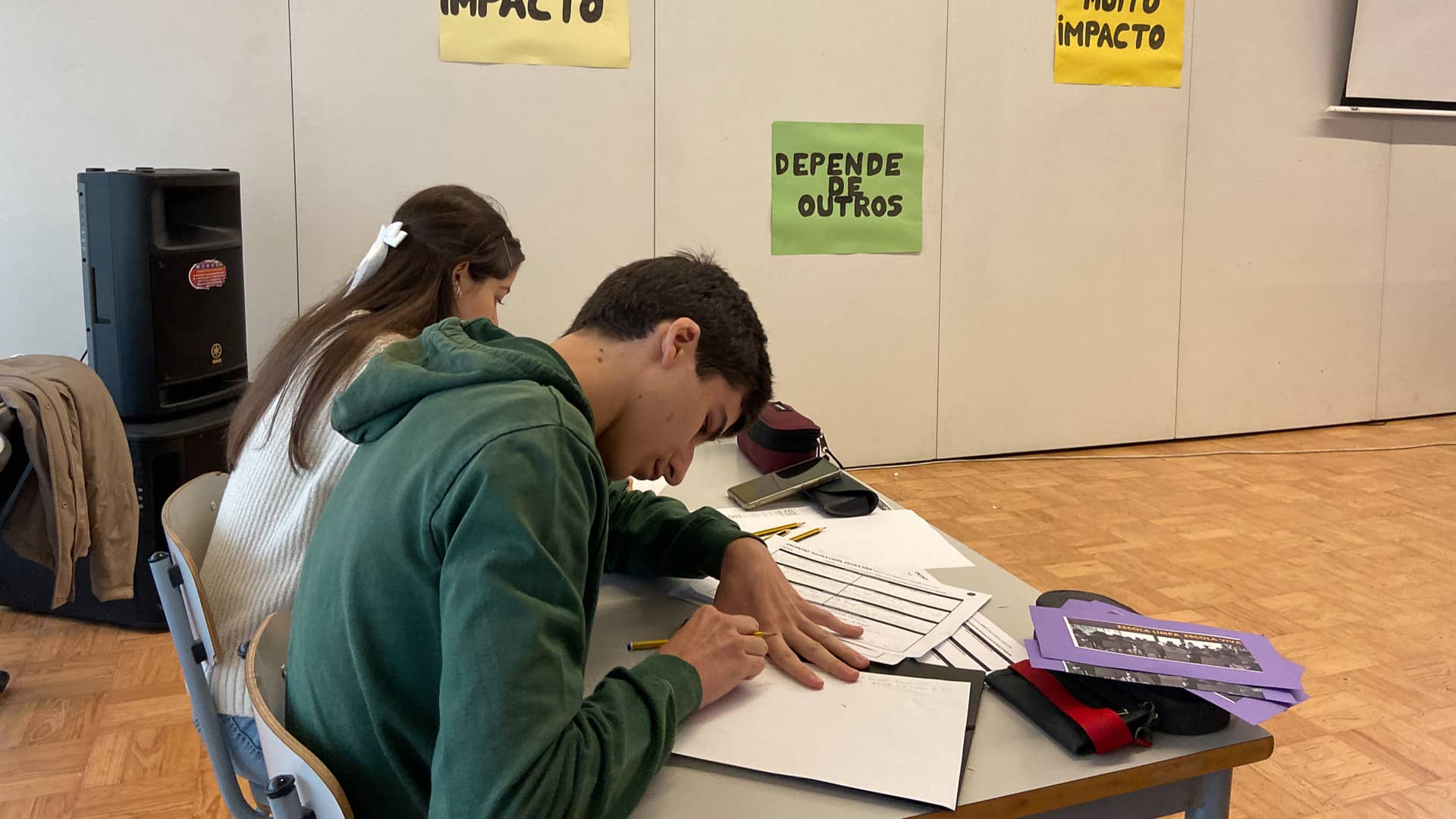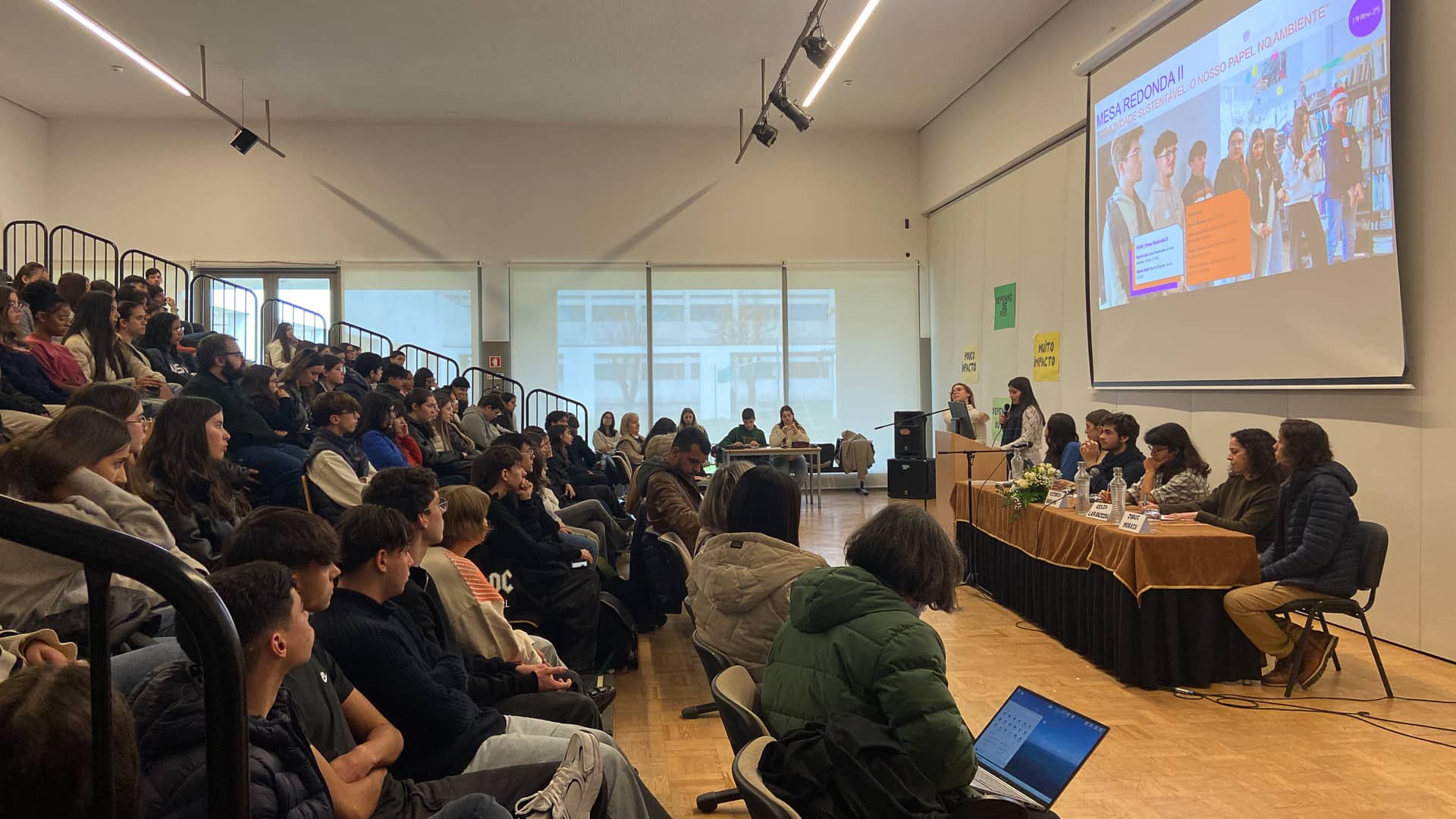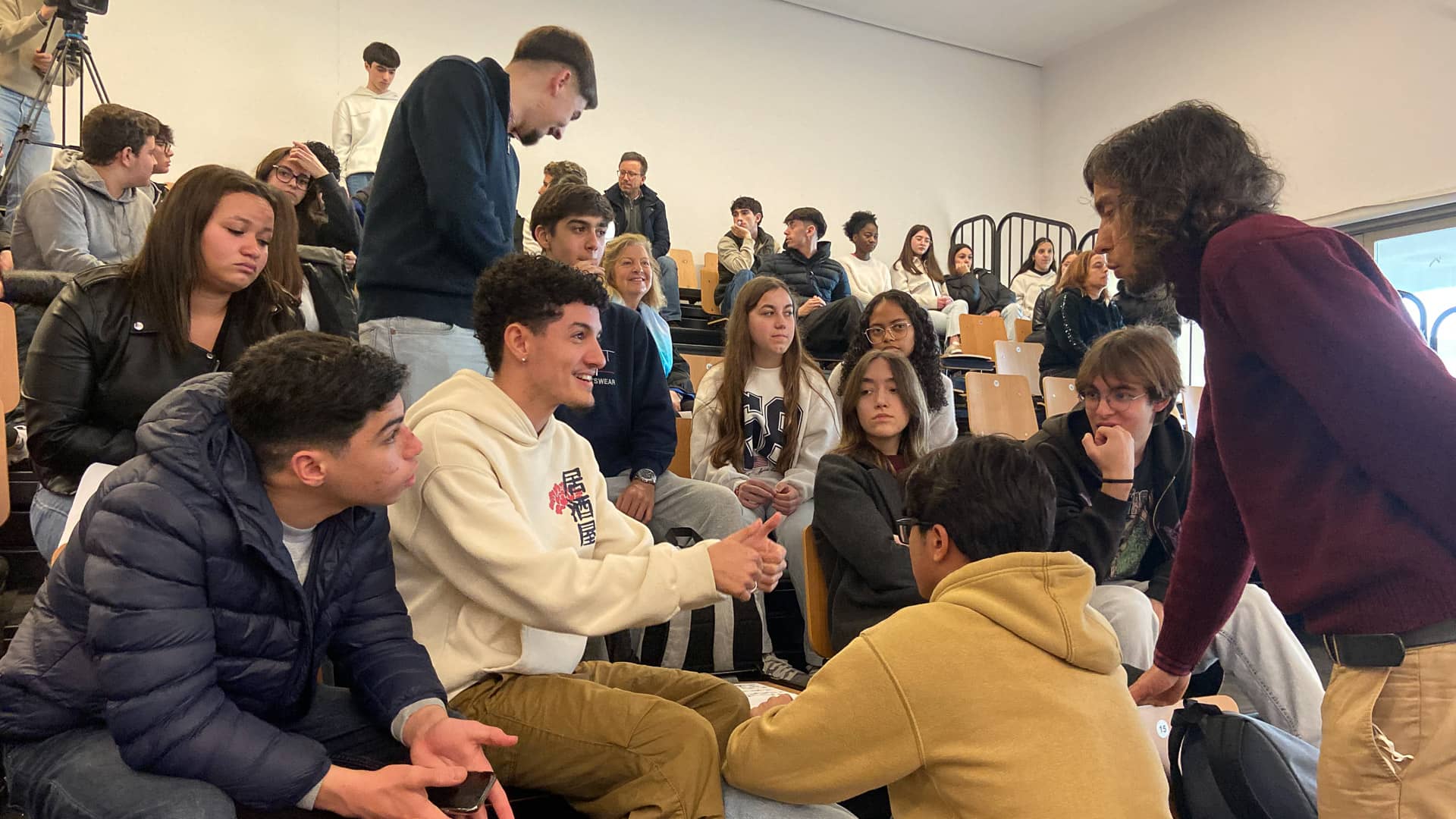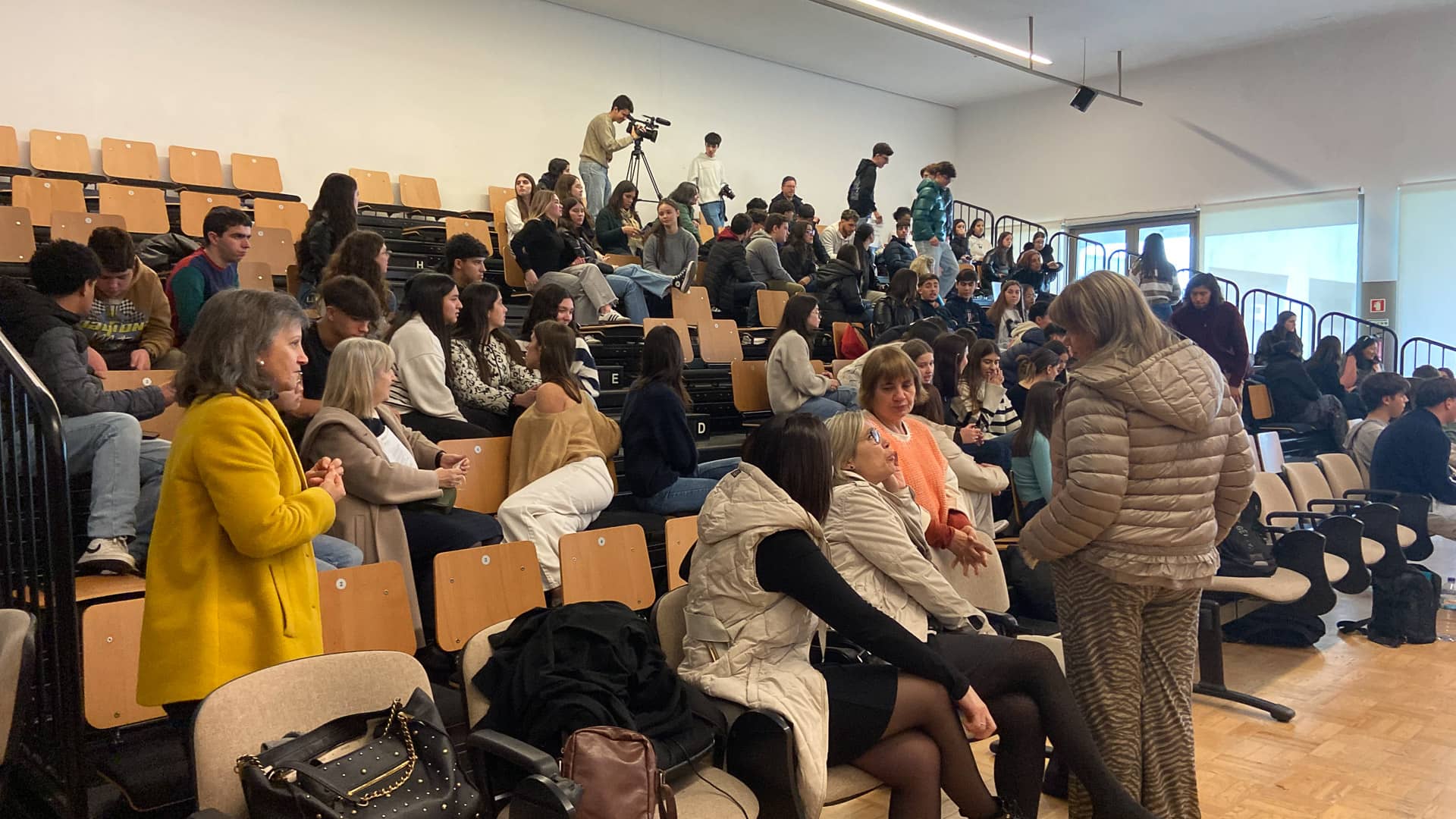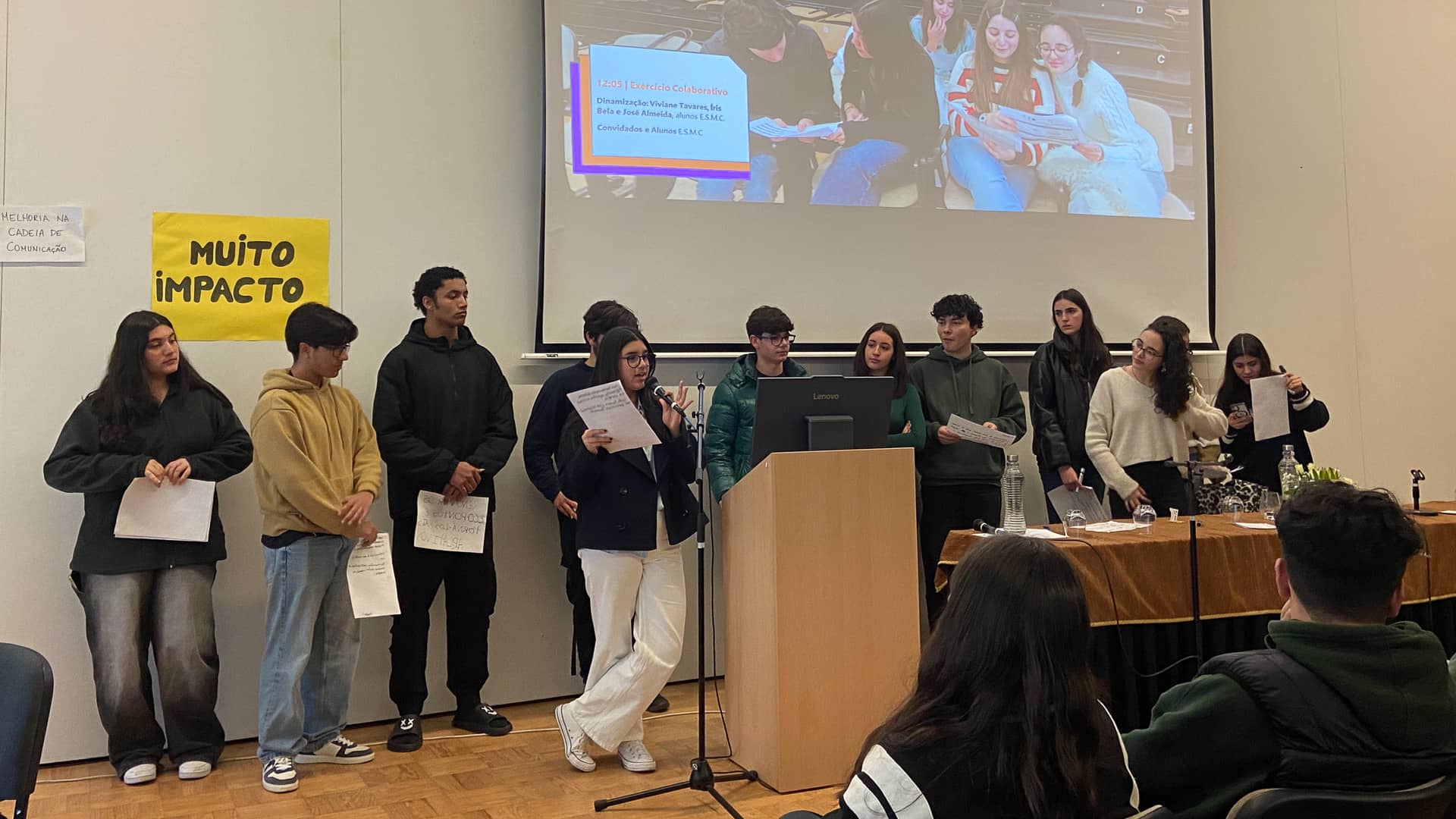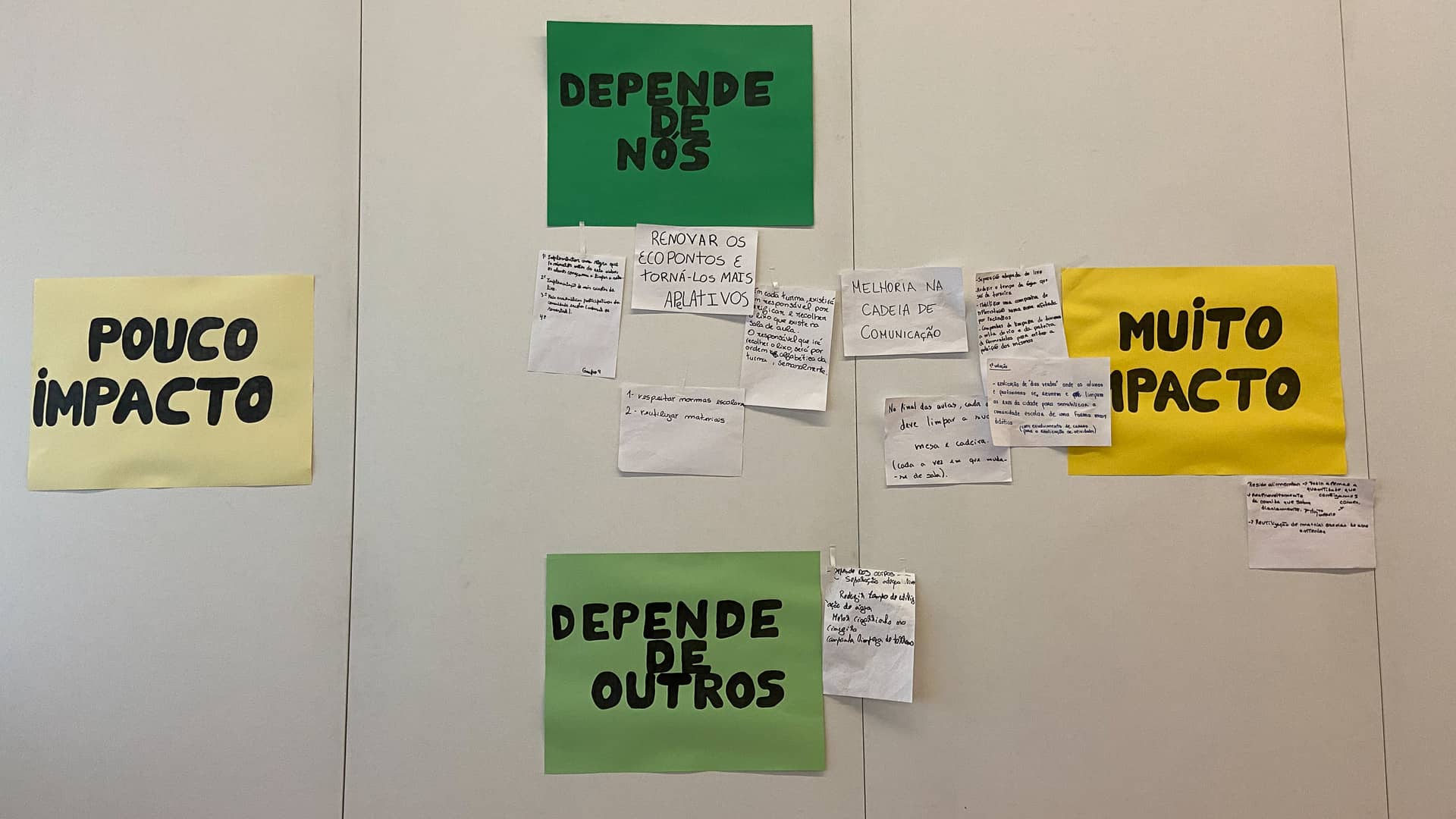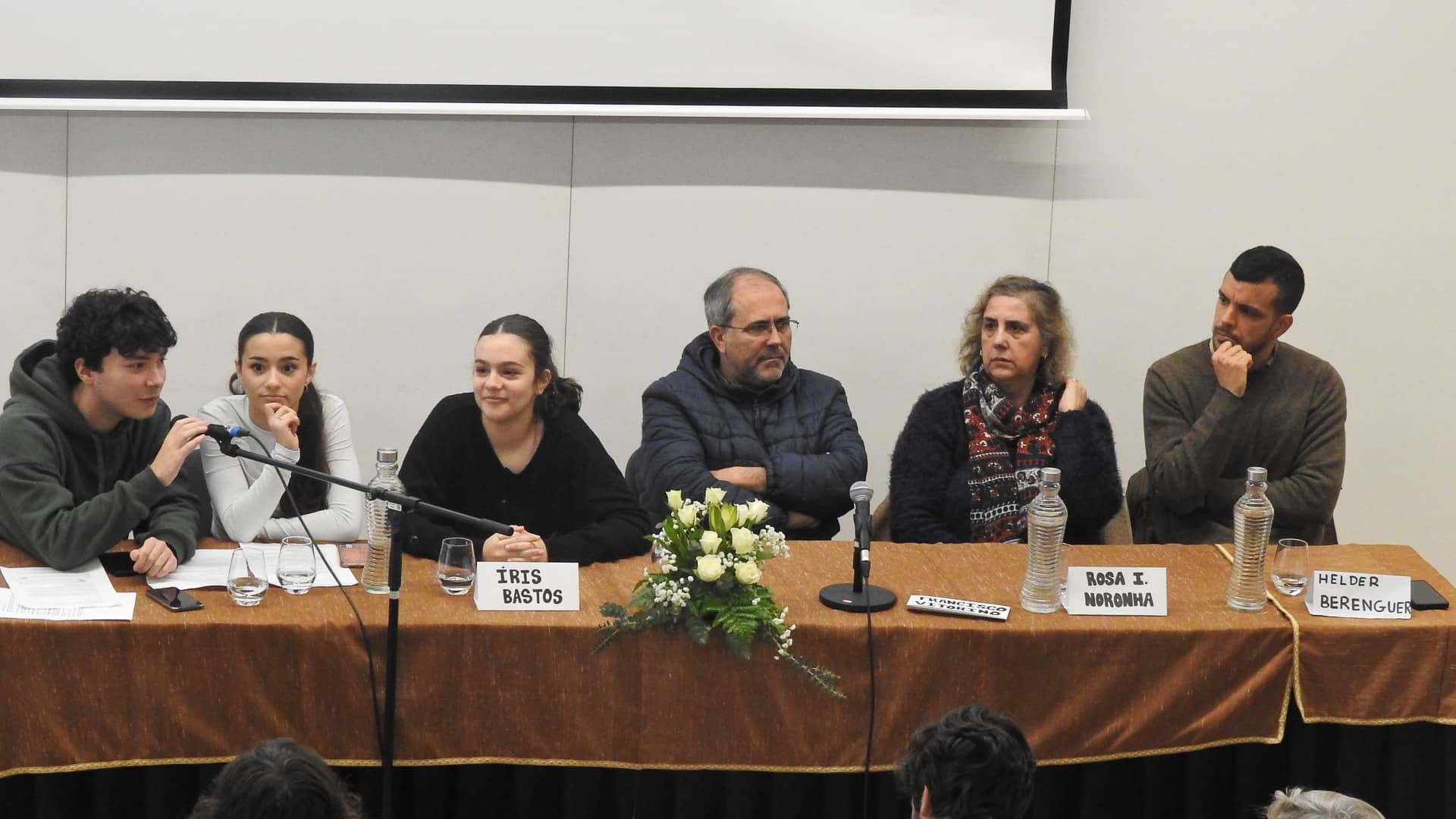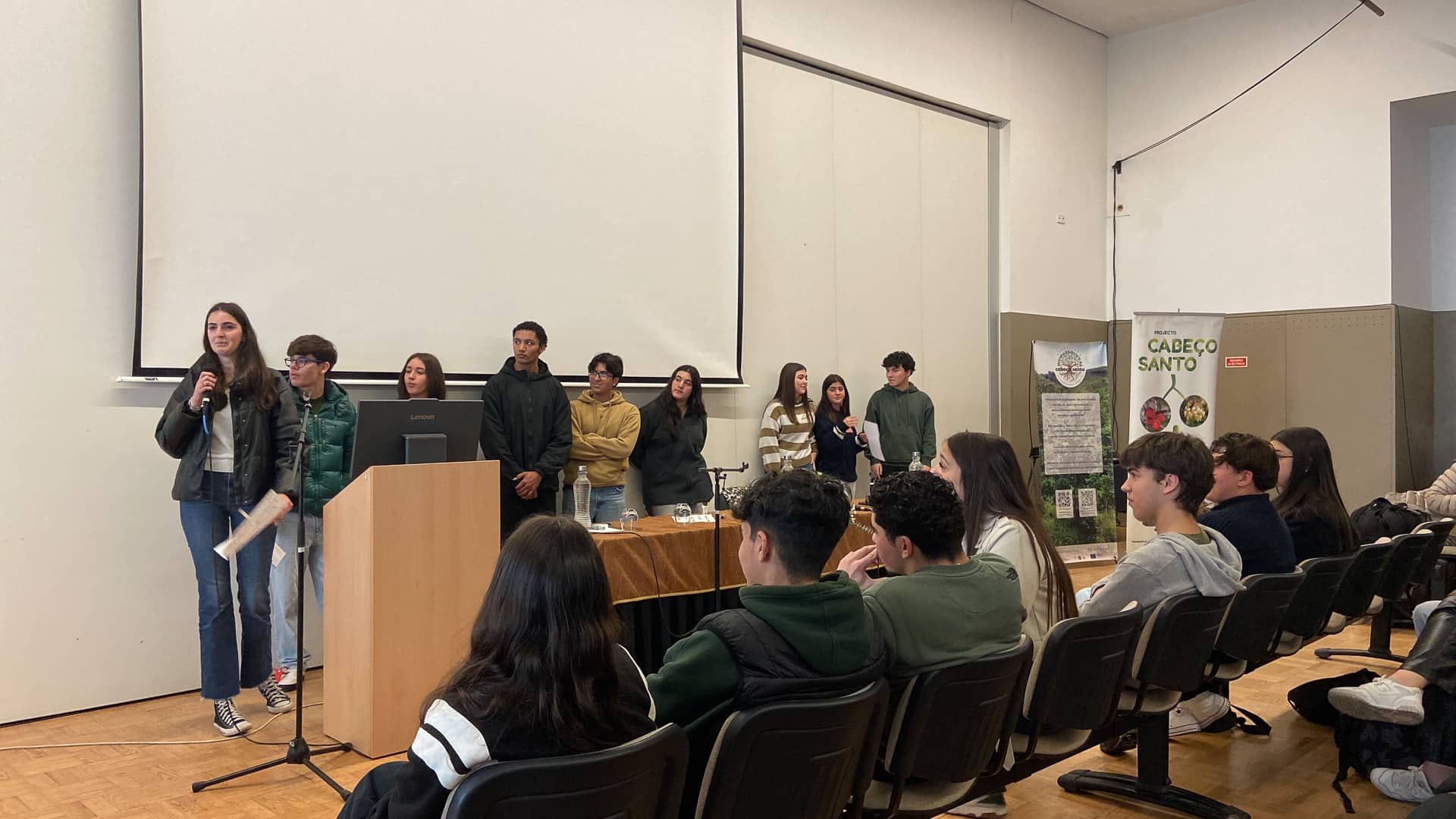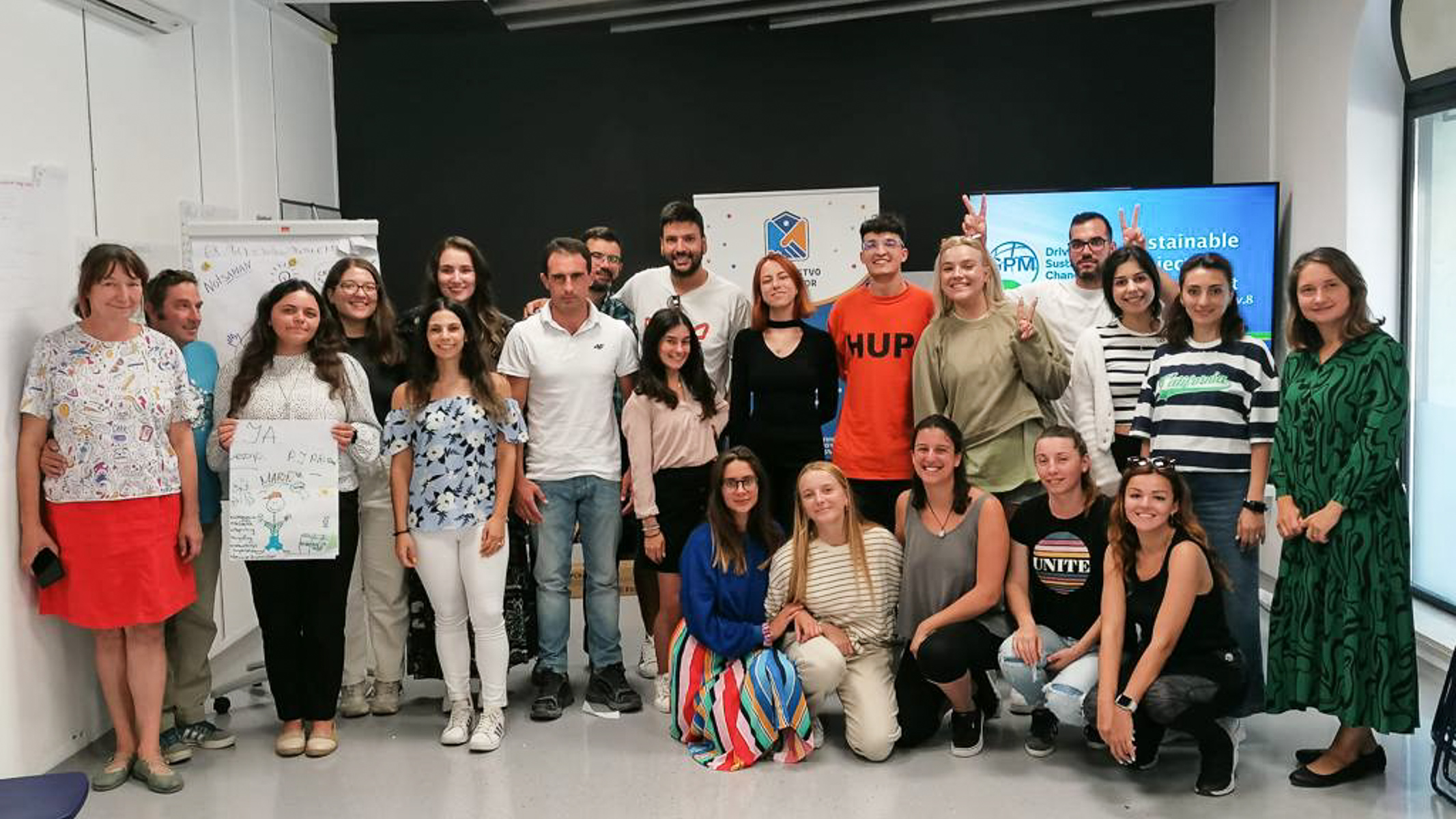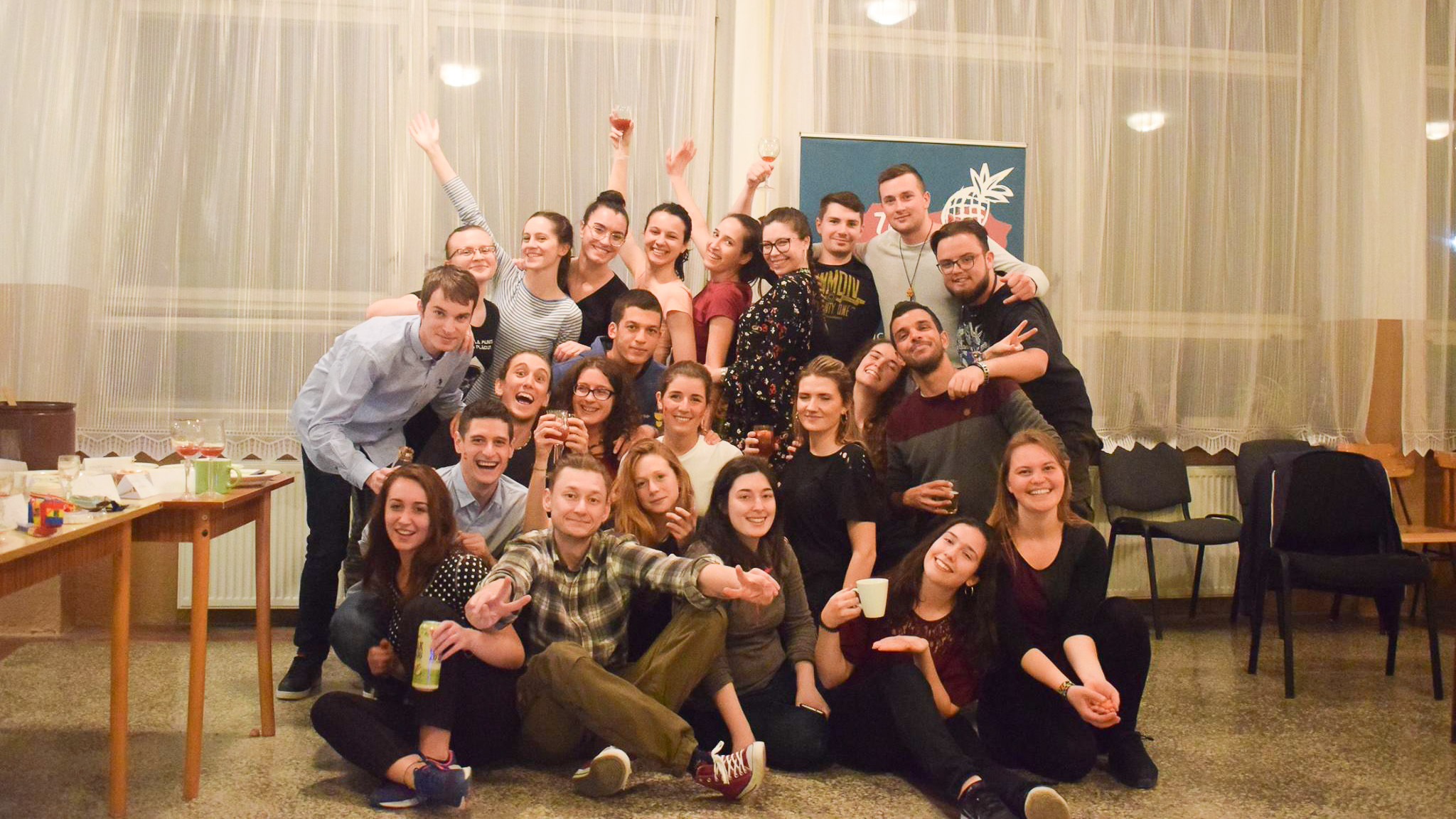Deliberation in Action - A Success Story
A “mega-class” of 55 students from Marques de Castilho Secondary School in Águeda spent ten weeks engaged in an intense collaborative exercise on problem-solving, collective deliberation, and public speaking — the Common Room project, developed as part of the Erasmus+ project “DOCC – Debate On, Change Communities.”
Estimated reading time: 3 minutes and 14 seconds
This initiative was implemented as part of the Erasmus+ “DOCC” project, in collaboration with the researcher Alexandra Ataíde. The “Common Room” followed a model consisting of seven collaborative sessions, participatory methodologies, and a total of 12 hours of activity. It created the right environment for 11th-grade students from both general and vocational education tracks to take the lead in a collaborative problem-solving process—supported by their Philosophy teachers Helena Alves, Conceição Martins, Anabela Mónica, and Baltazar Rebelo.
So, what problem did the students choose to tackle?
As a group, they decided to focus on the issue of litter and cleanliness at school. Working in teams, they researched and analyzed the problem, leading to interesting discoveries that were key to the next phase: generating ideas.
In response to the question, "How can we make our school cleaner?", the students proposed dozens of possible solutions. One answer stood out: organizing engaging events involving the entire school community, to share ideas and actions for more effective cleanliness and environmental sustainability at school.
These ideas gradually took shape over the sessions. With dedication from both students and teachers, they designed and organized a youth-led event. The slogan chosen was: “Clean School, Living School!”—an encounter focused on environmental sustainability.
The students took full charge of organizing and running a dynamic, engaging event structured in three parts: two roundtable discussions and a collaborative exercise. During the “Clean School, Living School!” event, they took on all the roles—speakers, hosts, moderators, rapporteurs, facilitators, photographers, and video operators—while also participating actively in the audience, encouraging their peers to share ideas.
In total, more than 300 secondary school students took an active part in this event, reflecting on the vital role the school community plays as caretakers of the environment, both inside and outside school. The roundtables featured guest speakers including decision-makers (such as the director of the school and the head of the Environment division of the Municipality, teachers, and representatives from environmental and civic associations.
One of the highlights was a student-led collaborative exercise involving 105 fellow students. Together, they debated and generated several ideas to make the school cleaner—and more alive.
Inside the Common Room, students built new friendships and strengthened old ones, tackled a complex issue, and tested a real-world solution. With support from experienced teachers, they were surprised by what they achieved—the knowledge gained, the results obtained, and the development of various transversal skills, including: critical thinking, creative thinking, openness to diversity, collaborative problem-solving, deliberation, active listening, public speaking, teamwork, social responsibility, and civic participation.
What did the students enjoy most about the Common Room project?
Although many pointed to the final event as the highlight, they mentioned much more. Here are some of their responses to the question: "What did you enjoy most about the Common Room project?"
- "My favorite moment was the first session when we were discussing the problems we noticed in school."
- "I made new friends and got to discuss something we need to change in our school."
- "When we worked as a group to find solutions."
- "I liked meeting new people."
- "The exchange of ideas between classes."
- "The final moment, because I realized that even with little time we managed to make the event happen."
"The three parts of the event—it was something different, and I had never participated in anything like it." - "The event itself, because we could see everything we worked for come to life.
This initiative is part of the “DOCC: Debate On, Change Communities” strategic partnership within the Erasmus+ programme. It is also supported by the Municipality of Aveiro and IPDJ - Instituto Português do Desporto e Juventude, I.P..

Agora Aveiro
